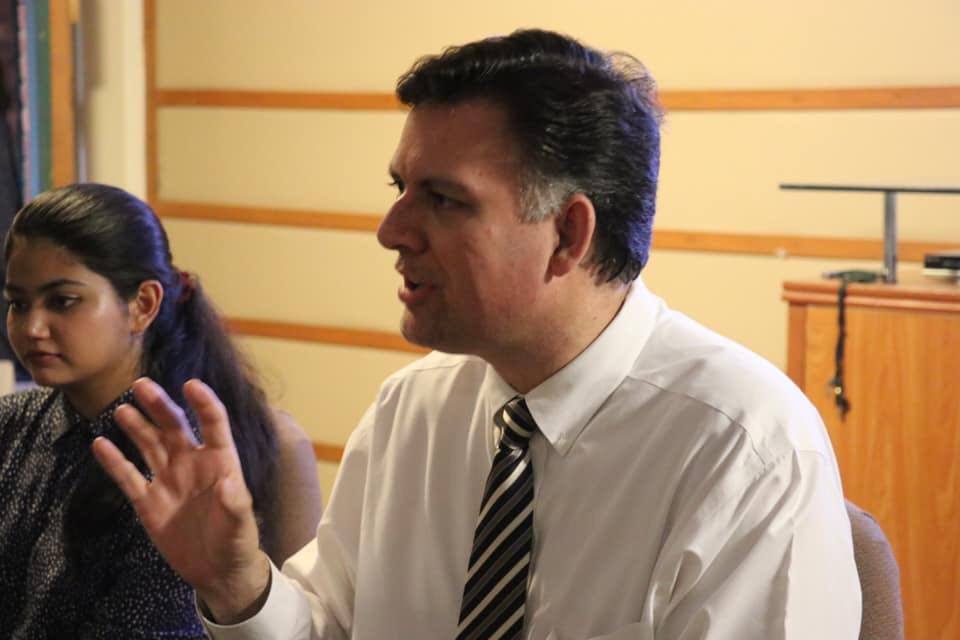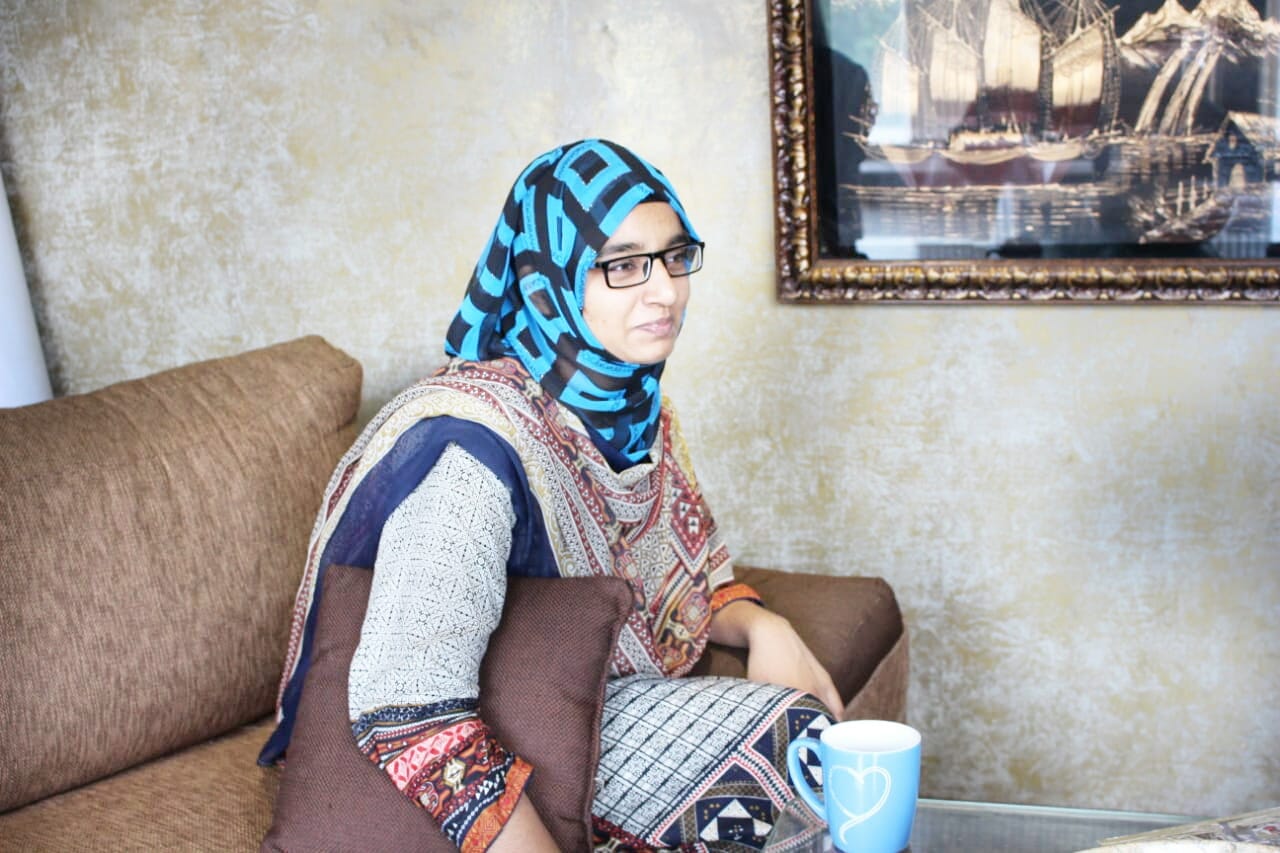Dedicated and absolutely committed healthcare professionals are few and far. Infact, in underdeveloped countries, persuading a doctor, at the cost of lucrative incentives, to prescribe only one brand to all diseased personnel is brutally common. In such a sorry state of affairs, it is quite hard to find a therapist who treats without medicines. Dr. Ali Madeeh Hashmi is one of those rare ones who are crowned as a doctor without medicine. He treats patients with the healing power of listening and counselling, and this makes him an eminent psychiatrist.
We, Scientians, in fact an Editor and a Junior Pharmacist- Khola Abid, sat with Dr.Ali Madeeh Hashmi who practiced psychiatry for 16 years in America and is currently teaching at King Edward Medical College as an Associate Professor and Head of Department of Psychiatry. He is certified from American Board of Psychiatry and Neurology, and has authored a celebrated book: Love and Revolution.
Khola: Sir, why did you return to Pakistan after the longest stay of 16 years in the US? Health care system and the patient care model of the US is up to par. What actually attracted you back towards Pakistan?
Dr. Ali: The reason that most people (especially professionals) return to Pakistan from abroad (other than those who lose their jobs and cannot stay or have other problems) is to be close to parents and family. Another reason is to expose our children to our own culture which is important to most people living abroad. These were my reasons also. In addition, I had always wanted to teach and be around students and young people and I am fortunate that I got the chance to come back to Lahore and to teach at my alma mater, King Edward Medical University where I have been on faculty for the last 10 years. It has been a great blessing and I enjoy it every day. I wrote about some of my reasons for coming back in The News’ article that went to air on 11 December, 2016. If readers are interested, may give it a read: https://www.thenews.com.pk/tns/detail/562284-want-back-home
Khola: In comparison to surgery and other medical specialties, psychiatry is not seen as lucrative enough; additionally, there is a real dearth of Psychologists and psychotherapists in Pakistan. What really persuaded you to opt psychology as your life profession?
Dr.Ali: I am actually not a psychologist but a psychiatrist. The difference is that psychiatrists are medical doctors who complete their medical training first and then get additional training (for 4-6 years) in psychiatry. So we are medical doctors first and are thus trained in recognizing and treating mental illnesses from the medical perspective including mental illness that may be because of medical problems.

Psychologists do not go to medical college. They get a Bachelor’s degree in psychology usually followed by a Masters and sometimes a PhD (in which case they also call themselves doctors which can get a little confusing!). But since psychologists are not medical doctors, they cannot prescribe medications or do medical assessments. They are experts in things like psychological testing for example for children who are having problems in school. They also do psychotherapy (sometimes also called ‘counseling’).
Yes, there is a severe shortage of both psychologists and psychiatrists in Pakistan and my main motivation for becoming a psychiatrist was my interest in mental health. Interestingly, my own father is a psychologist so that was probably one reason I was interested in it.
Khola: Health system of Pakistan is not up to the mark, this is what we are all aware of. What are the real lacks, loopholes, and bars that are restraining us from developing an ideal patient care model?
Dr.Ali: The main problem with our healthcare system is lack of funding. We do not spend nearly enough on healthcare for our population.
Pakistan spends less than 1% of its GDP on health while the recommendation of the World Health Organization is that it should be at least 5%. In addition, mental health does not even have a separate budget.
Unless we are willing to spend more on building more hospitals and clinics, hiring and training more healthcare professionals and providing them with appropriate training and supervision, it’s difficult to see how things can change.
Khola:What we can see is that patient care is not a one man game; only physicians are not capable enough to provide effective and sustainable therapy. So, integration of different health professions and professionals is in the dire need. Why are we still unable to develop a sense of cooperation and harmony among different health sectors?
Dr.Ali: I think this question has been partly answered above. Yes, there is a dire need to develop allied medical specialties starting with nursing and other health professions. We also need more trained professionals for example in physical therapy, lab technicians, ultrasound technicians and many other trained people to support doctors and nurses. But all of this has to start with more government investment in health.
Khola: Quacks and their malicious quackery is brutally common in some medical specialties, psychiatry is one of them. How can an innocent (less educated) person distinguish a reliable therapist from an experienced one? Do we have a quick referencing guide/clues for saving patients from pseudo-psych?
Dr.Ali: Sadly, it’s not just therapists but also many doctors and psychiatrists, as you mentioned, who practice unethically. In general, one way you can assess whether a doctor is qualified or not: check and see if they are on faculty at a medical college and university since those institutions usually have strict criteria for who gets hired. In Pakistan, word of mouth is a good way so you can ask around experiences of families or friends. You can certainly email or message a doctor directly to ask what kind of practice they have, and whether what you want help for is something they treat and lastly, you can get an appointment and go see them. If they are professional, pay attention to your complaints, answer your questions and you are satisfied that you have been listened to, you can go back for follow up.
Regarding psychiatrists, if they want to prescribe medicines, always ask lots of questions about why they are giving your medicines, if they are really needed etc.
And if you end up seeing a psychiatrist who gives you five minutes, doesn’t listen to you and writes you lots of medicines, don’t go back there. Find someone else.

Khola: Sir, considering a psychiatrist for mental health disturbances is a serious phobia among Pakistanis. In fact, people who seek mental health are often ridiculed. In your opinion, what’s a real psyche behind it?
“The idea of psychiatric medicines is so fraught with misconceptions in our society that most people have a visceral negative reaction to the idea.”
We should be more proactive about educating people, especially doctors, about not stigmatizing mental illness. And we need the general public to educate themselves about it as well.
In addition there are a lot of myths about mental illness and psychiatric medicines. It is generally considered that all psychiatric medicines are quite addictive. It’s absolutely not true, as
There is nothing like alcohol, caffeine, and heroin in psychiatric medicines. If they are used appropriately, they can be tapered and cut even after a month of therapy.
Khola: Sir, do you think our education system is contributing to the mental illness of our medical students? We are devoid of interactive and integrated modules for our students; not only this, there’s a considerable scarcity of inspiring educators as well. I wonder if we could spot the root cause of it.
Dr.Ali: Yes, I think our memorization based, top-down education system is contributing to poor mental health in many of our students. Our education system needs a complete overhaul. We need a system which puts students in charge of their own learning and creates a love of learning rather than a hatred of it. Since I have been teaching for over 9 years in Pakistan, I can safely say that critical thinking, questioning, and defying the norms are not only disdained but also punished in the culture of our institutions.
“Being a father of three children of various ages going through the school system in Pakistan, I have heard first hand stories from my own children about teachers who berate them for being curious and inquisitive, who insult them for asking questions and God forbid, if they should ever correct their teachers (which my children used to do), they are severely reprimanded.”
Khola: Sir, how did literature inspire you in your academic and then practicing years, and how far can it influence the life of any student?
Dr.Ali: I have a special interest in how literature, poetry and all branches of the Art relate to medical and psychiatric practice. I have written quite a few articles about it. Reading literature and poetry or learning to appreciate painting, music, sculpture, dance and other forms of the fine arts can enrich our lives in so many ways. And it is particularly important for students of all disciplines to become familiar with Arts. It will help you become a better student, a better worker (after you graduate) and a better person. And it’s really fun!
Khola: Finally Sir, what advice would you give to all students who are currently reading this worthiest interview?
Dr.Ali: Follow your passion. Find out what you love doing and do it. Don’t let other people tell you how to live your life, what to study, what kind of work to do. It’s your life. Take responsibility for it and follow your dreams. That’s the only kind of life worth living and you will be much happier in the long run. (and if you love what you do, you will never have a problem making money from doing it).

Khola Abid is in her fourth year of Pharm at UVAS, Lahore. She is interested in history and development of Science.

